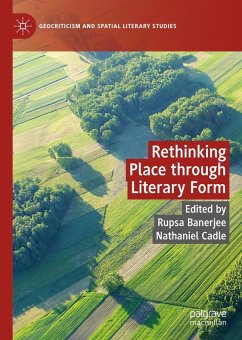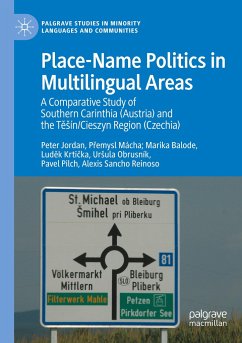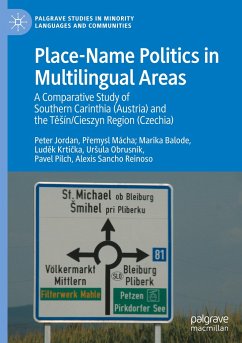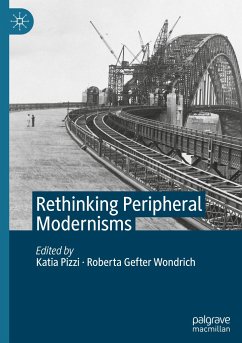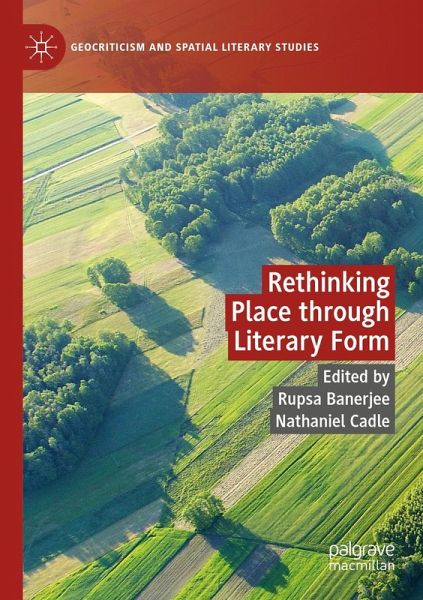
Rethinking Place through Literary Form
Versandkostenfrei!
Versandfertig in 6-10 Tagen
83,99 €
inkl. MwSt.

PAYBACK Punkte
42 °P sammeln!
Rethinking Place Through Literary Form regards the relationship between place and linguistic form as challenging real and perceived configurations of place and renegotiating geopolitically determined categories of the 'centre' and 'periphery'. The volume argues that the rise of scattered communities, displaced physically and psychologically by urban and alienated geographies, necessitates linguistic negotiations of one's locatedness in place as the chief means of uncovering and re-building identity. By looking at narrative re-imaginings of forgotten and interrupted intimacies between habitatio...
Rethinking Place Through Literary Form regards the relationship between place and linguistic form as challenging real and perceived configurations of place and renegotiating geopolitically determined categories of the 'centre' and 'periphery'. The volume argues that the rise of scattered communities, displaced physically and psychologically by urban and alienated geographies, necessitates linguistic negotiations of one's locatedness in place as the chief means of uncovering and re-building identity. By looking at narrative re-imaginings of forgotten and interrupted intimacies between habitation and place from diverse parts of the world, the twelve chapters address the growing need to expand and alter approaches to literary representations of modernity and modes of self-location.





